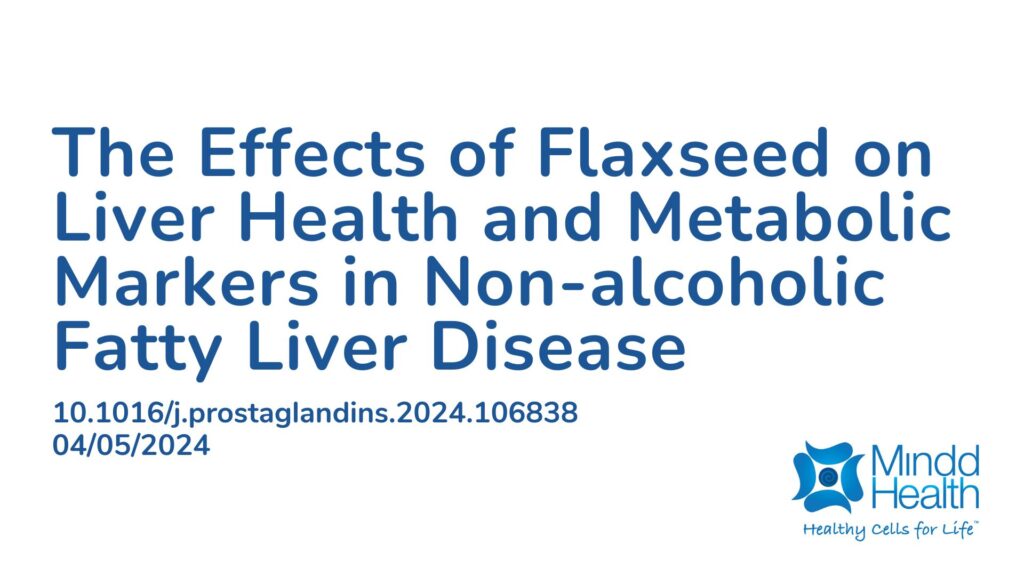Summary:
Nonalcoholic fatty liver disease (NAFLD) is the most common liver condition worldwide, characterised by fat buildup in liver cells. If untreated, it can progress to more serious liver diseases like nonalcoholic steatohepatitis (NASH), cirrhosis, and liver cancer. NAFLD is closely linked with metabolic syndrome, including obesity, insulin resistance, diabetes, and high blood pressure. Although diet and exercise are the main treatments, many people struggle to maintain these changes, and drugs are often ineffective. Flaxseed is rich in omega-3 fatty acids and fiber, making it a promising supplement for metabolic health. Flaxseed may help lower lipids, improve insulin sensitivity, and support weight loss, which are relevant for managing NAFLD. This meta-analysis reviewed studies up to January 2024 assessing flaxseed supplementation and NAFLD patients’ lipid profiles and liver enzymes. Results showed flaxseed significantly reduced triglycerides and liver enzymes (ALT and AST), while increasing HDL (“good”) cholesterol. Lower doses (<2000 mg/day) were particularly effective in reducing ALT levels. These findings suggest flaxseed supplements may help improve liver function and blood lipid profiles in individuals with NAFLD.
Abstract:
Since the effects of flaxseed supplementation on lipid profile and liver enzymes are still controversial, a meta-analysis of randomized controlled trials was conducted in the present study to assess the effect of flaxseed supplementation on lipid profile and liver enzymes. The study was designed, conducted, and reported according to the guidelines of the 2020 preferred reporting items for systematic reviews and meta-analysis (PRISMA) statement. A systematic and comprehensive search was performed in several databases from inception up to January 10, 2024. The meta-analysis on the impact of flaxseed supplementation on lipid profile and liver enzymes indicates that the overall effect of flaxseed supplementation on triglycerides, combining different doses, revealed a significant reduction with a WMD of − 230.72 (-53.95, − 27.49) and a P-value of 0.010. High-density lipoprotein (HDL) demonstrated a positive effect, with an overall WMD of 1.82 (0.27, 3.38) and a P-value of 0.021, indicating an increase in HDL levels. The liver enzymes AST and ALT displayed reductions in their levels, with overall WMDs of − 21.18 (-2.95, 0.59) and − 24.83 (-8.74, − 20.91), respectively. Subgroup analysis based on dosage revealed more pronounced reductions in ALT levels for doses below 2000 mg/day. Findings from this study suggest that a flaxseed supplement might be beneficial to modulate the blood lipid profile and liver enzymes.
Article Publication Date: 04/05/2024
DOI: 10.1016/j.prostaglandins.2024.106838



